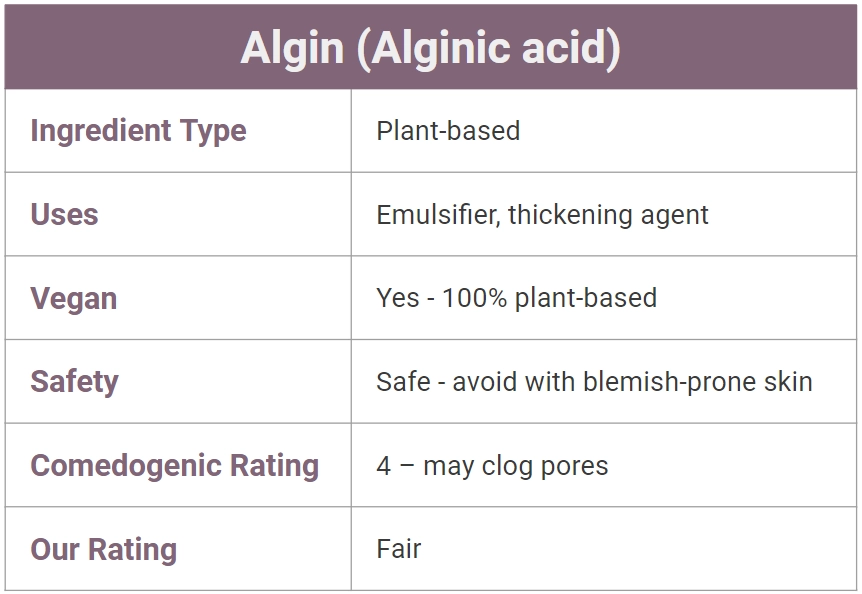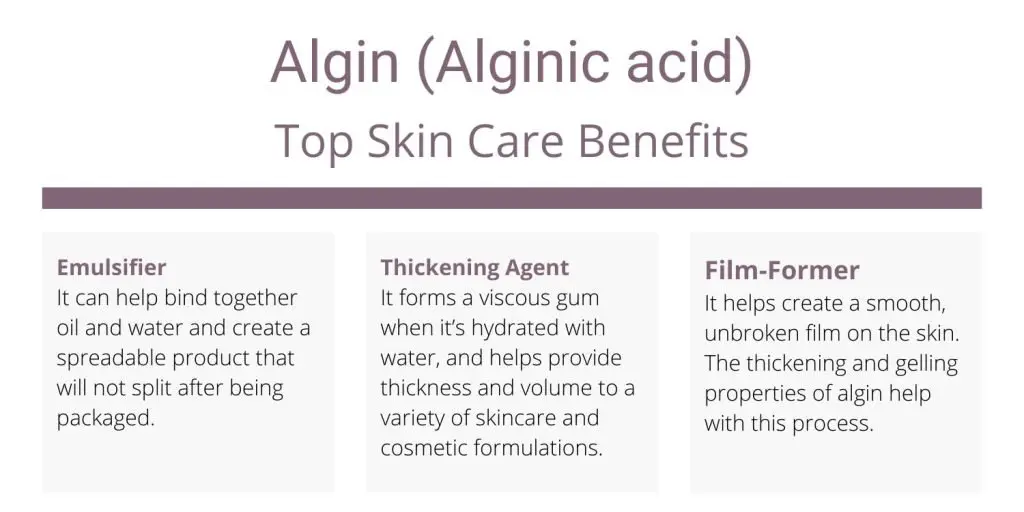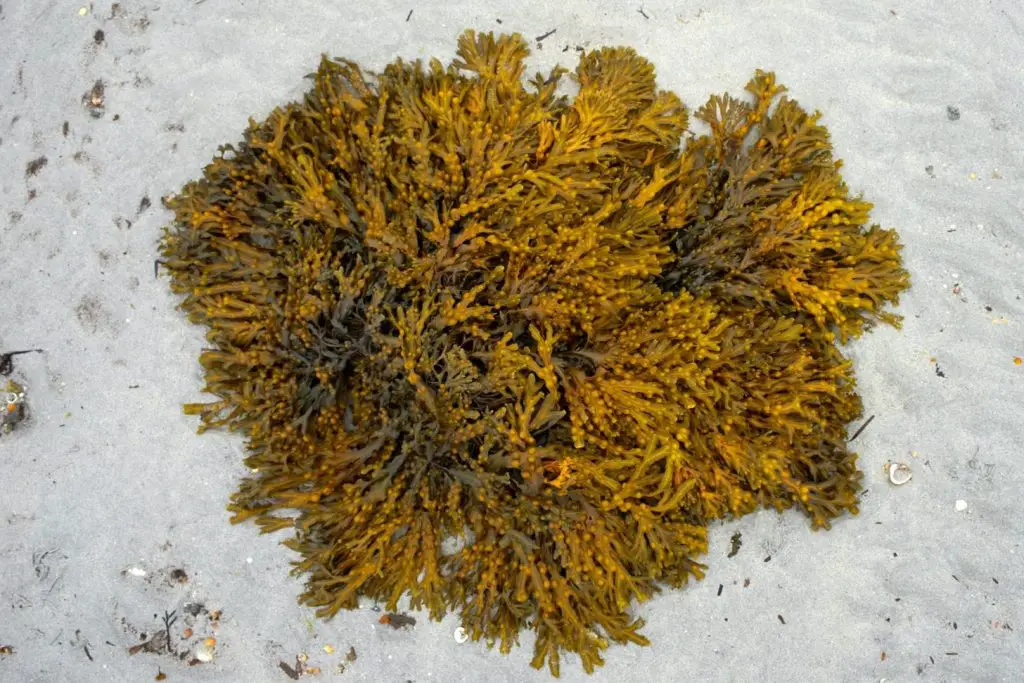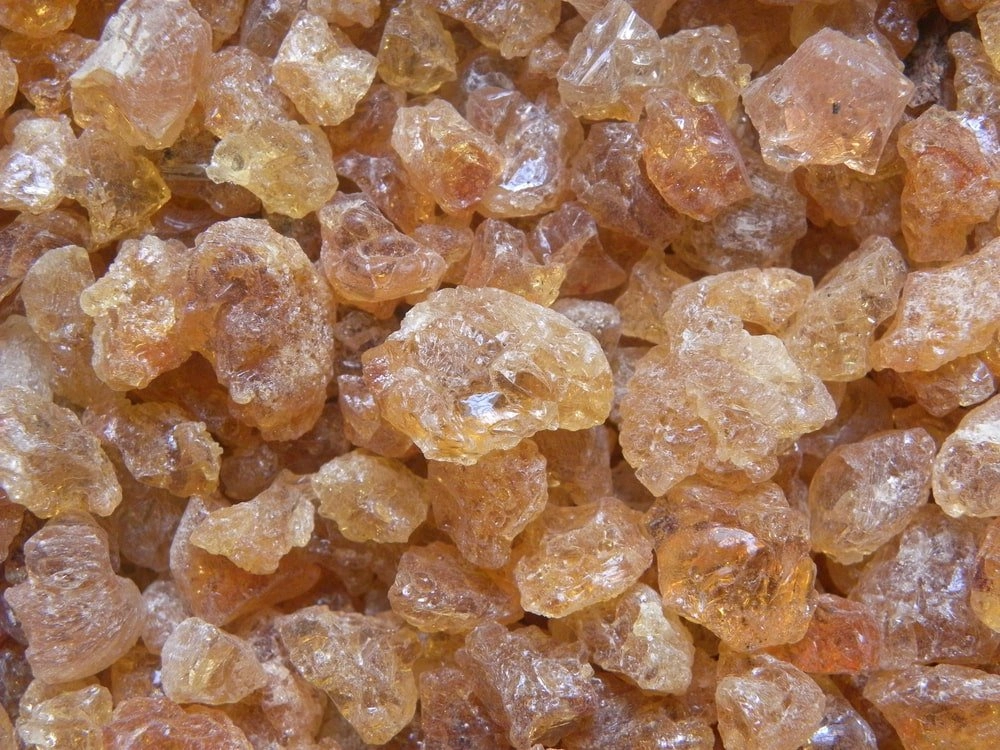When you think about brown seaweed, skincare and cosmetics products likely aren’t what come to mind. Algin or alginic acid may change that for you. It’s a safe skincare ingredient that enhances product texture and thickness. It’s a vegan, sustainable, and brown green ingredient.
This post may contain affiliate links. Read the full disclosure here
However, this ingredient has a comedogenic rating of 4, meaning it can clog pores. Take precautions before using if you struggle with acne, blemishes, or clogged pores.

What Is Algin?
Algin is derived from alginate and is also known as alginic acid. This is a naturally-occurring polymer that comes from the brown algae known as Phaeophyceae. This class of algae grows in temperate coastal marine environments throughout the world, wherever the water is less than 72 degrees Fahrenheit.
Algin is used in skincare for many product types. After processing and production, it’s typically sold in powdered, granular, or filament form. It’s often used in lotions and creams, along with other ingredients that help thicken the product and deliver moisture and nutrients to the skin. It’s a natural, plant-derived, sustainable ingredient, so it’s a favorite for plant-based and vegan skincare brands.
Learn more about various skin benefits of seaweed here.
Algin Uses & Benefits for Skin
Algin is often used in skin care for its emulsifying, thickening, and film-forming benefits. It improves the thickness and texture in products, making them easier to use.
- Emulsifier – Algin is an emulsifier. This means it’s able to help bind together oil and water and create a spreadable product that will not split after being packaged. This enhances the overall texture and spreadability of the skincare product, as well.
- Water binding agent – As a gelling-polysaccharide, it is often used to help water bind with skin care products, and it helps your skin readily absorb the water and moisturizing agents contained in a gel, cream, or ointment.
- Thickener – Algin forms a viscous gum when it’s hydrated with water, and helps provide thickness, body, and volume to a variety of different skincare and cosmetic formulations.
- Film former – A film former is a compound that helps create a smooth, unbroken film on the skin as a cosmetic product is spread. The thickening and gelling properties of algin help with this process.

Is Algin Vegan?
Algin is 100% vegan. It’s derived from a family of brown seaweed that is extremely common throughout the world, so it’s sustainable and environmentally-friendly, too.
As always, consult with the cosmetic manufacturer and read skin care ingredient labels closely to ensure you’re using vegan products. Algin is common in many products, so it may be used alongside animal-derived ingredients in some cases.
Is Algin Safe To Use In Skincare?
Yes. Algin in skin care has no known issues related to toxicity, carcinogenic effects, allergies, or any other such risks. It’s even used in some food products for its gelling properties, and is safe for consumption. Algin is considered safe to use in skincare products, but it might not be the best option for all skin types.
Algin Acne Concerns
Algin has a comedogenic rating of 4, so it could clog your pores. It is best to avoid Algin if you have acne or struggle with clogged pores. While the comedogenic rating system has its flaws and is outdated by some standards it’s still a good metric to consider when evaluating new products/ingredients.
Products With Algin
It’s used in a wide variety of serums, essences, lotions, creams, ointments, and moisturizers.
You’ll find algin in anti-aging serums, masks, repair oil, creams, cosmetics, and more. It is used by popular brands such as True Botanicals, Dior, 100% Pure, Dr. Jart, and Juice Beauty. These are a few examples of brands with strong followings that go for natural ingredients such as algin.
Also Known As
In addition to being called algin, this compound is also sometimes called alginic acid, or may be called brown seaweed extract. In skin care, though, the term “algin” is by far the most common on ingredient labels.
Other Seaweed-based Ingredients





